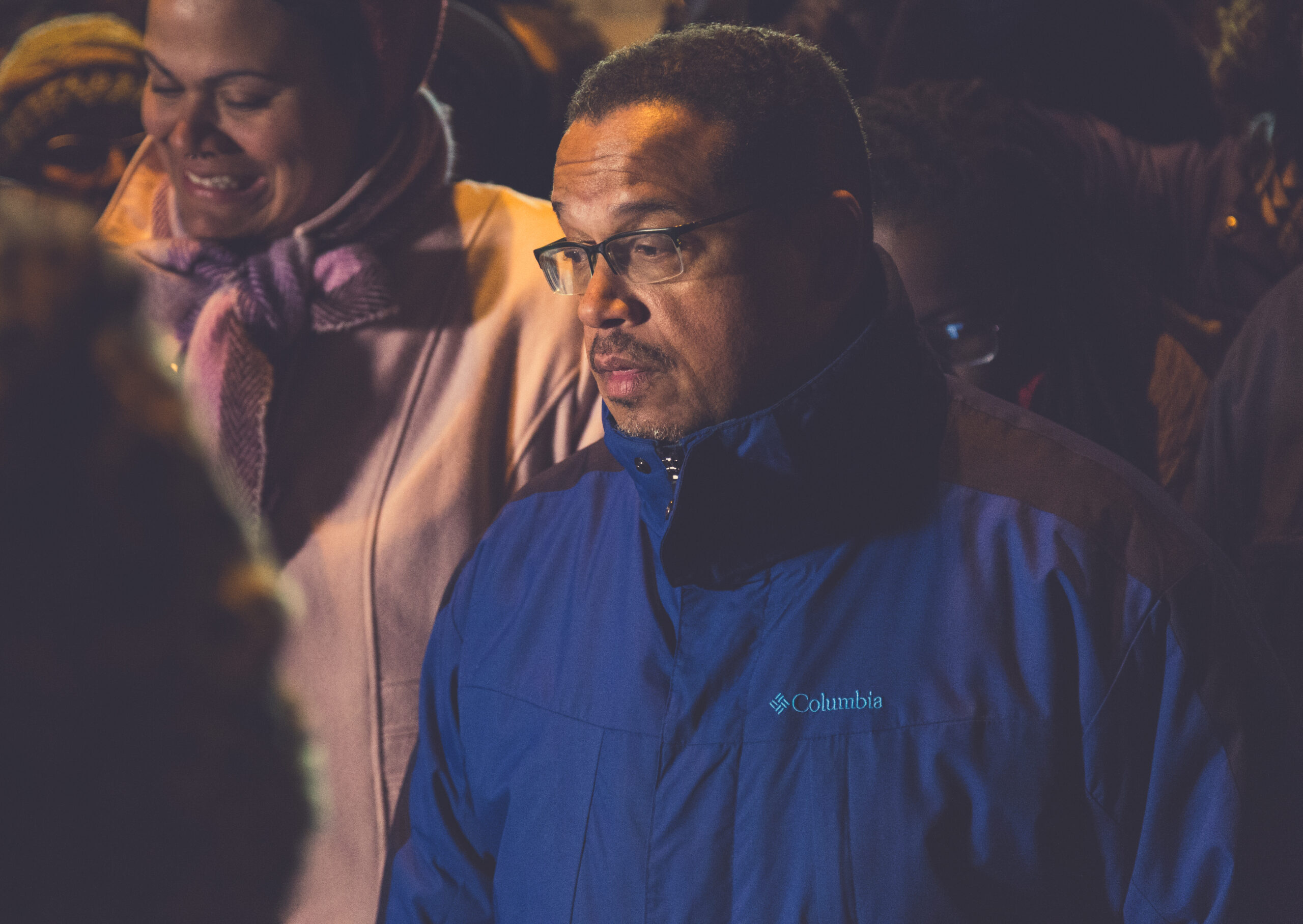Two days after Minnesota Governor Tim Walz asked state Attorney General Keith Ellison to take over for Hennepin County Attorney Mike Freeman as the lead prosecutor in the George Floyd case, Minneapolis Police officer Derek Chauvin has had the charge against him upgraded from third-degree to second-degree murder.
The three other officers at the scene – J. Alexander Kueng, Thomas Lane and Tou Thao – were each charged with aiding and abetting second degree murder while committing a felony and with aiding and abetting second degree murder with culpable negligence. (We strongly recommend viewing the video at the top of this paragraph for Attorney General Ellison’s statement.)
As can be seen here, at the top of page fifty-nine of the Commentary for the Minnesota Sentencing Guidelines:
- Second- and Third-Degree Murder. Minn. Stat. § 609.107, Mandatory Penalty for Certain Murderers, determines the presumptive sentence for an offender sentenced under that statute.
Minnesota Statute § 609.107 states:
When a person is convicted of violating section 609.19 or 609.195, the court shall sentence the person to the statutory maximum sentence for the offense if the person was previously convicted of a heinous crime as defined in section 609.106 and 15 years have not elapsed since the person was discharged from the sentence imposed for that conviction. The court may not stay the imposition or execution of the sentence, notwithstanding section 609.135.
Minnesota Statute § 609.19 specifies two types of Murder in the Second Degree – intentional murder, which includes drive-by shootings, and unintentional murder:
Subd. 2. Unintentional murders. Whoever does either of the following is guilty of unintentional murder in the second degree and may be sentenced to imprisonment for not more than 40 years:
(1) causes the death of a human being, without intent to effect the death of any person, while committing or attempting to commit a felony offense other than criminal sexual conduct in the first or second degree with force or violence or a drive-by shooting; or
(2) causes the death of a human being without intent to effect the death of any person, while intentionally inflicting or attempting to inflict bodily harm upon the victim, when the perpetrator is restrained under an order for protection and the victim is a person designated to receive protection under the order. As used in this clause, “order for protection” includes an order for protection issued under chapter 518B; a harassment restraining order issued under section 609.748; a court order setting conditions of pretrial release or conditions of a criminal sentence or juvenile court disposition; a restraining order issued in a marriage dissolution action; and any order issued by a court of another state or of the United States that is similar to any of these orders.
Minnesota Statute § 609.05 specifies liability for the crimes of another – the most relevant points are these:
Subdivision 1. Aiding, abetting; liability.
A person is criminally liable for a crime committed by another if the person intentionally aids, advises, hires, counsels, or conspires with or otherwise procures the other to commit the crime.
Subd. 2. Expansive liability.
A person liable under subdivision 1 is also liable for any other crime committed in pursuance of the intended crime if reasonably foreseeable by the person as a probable consequence of committing or attempting to commit the crime intended.
Subd. 4. Circumstances of conviction.
A person liable under this section may be charged with and convicted of the crime although the person who directly committed it has not been convicted, or has been convicted of some other degree of the crime or of some other crime based on the same act, or if the person is a juvenile who has not been found delinquent for the act.
Minnesota Statute § 609.205 defines manslaughter in the second degree – the most relevant points are these:
A person who causes the death of another by any of the following means is guilty of manslaughter in the second degree and may be sentenced to imprisonment for not more than ten years or to payment of a fine of not more than $20,000, or both:
(1) by the person’s culpable negligence whereby the person creates an unreasonable risk, and consciously takes chances of causing death or great bodily harm to another;
Minnesota uses a series of sentencing guidelines grids, depending on the type of crime involved. For its Standard Grid, its axes are the Criminal History Score and the Severity Level of Conviction Offense.
If none of the Minneapolis Police officers involved were shown to have any relevant circumstances that would increase their likely Criminal History Score of zero, if found guilty, Officer Chauvin would likely serve between just under eleven and fifteen years in prison for Unintentional Murder in the Second Degree.
Officers Kueng, Lane and Thao are unlikely to serve longer prison terms than Officer Chauvin if convicted, but in theory could serve up to ten years on the charge of aiding and abetting in the death of George Floyd.
A Federal investigation is also in progress, led by US Attorney Erica Macdonald, with an emphasis on “all allegations involving the deprivation of civil rights, including ‘color of law’ violations – official actions taken by persons acting under the authority of local, state, federal, or tribal laws to willfully deprive someone of a right or privilege secured or protected by the Constitution or laws of the United States.”
The Minnesota Department of Human Rights has also launched an investigation into the Minneapolis Police Department after filing a civil rights charge related to the murder of George Floyd. Floyd is due to be laid to rest later this week.

